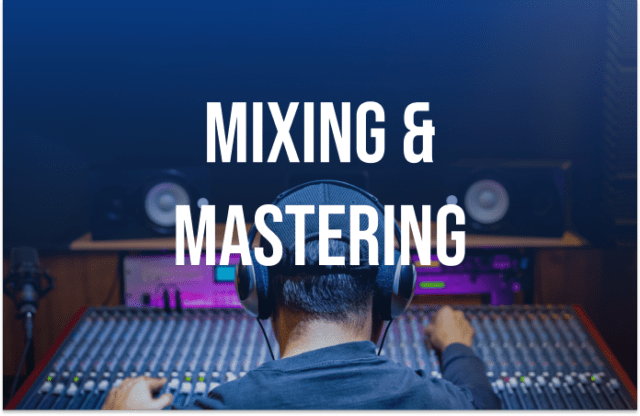The music and sound production field requires a dedicated and patient approach. Creating a high-quality & suitable composition of music is challenging as it requires both mixing and mastering. It takes ample time to deliver a well-polished work of content. The process of mixing involves delicately adjusting the volume levels of different elements, such as vocals, instruments, and effects, to ensure they blend seamlessly. It is similar to an artist skillfully combining various colors on a canvas to create a breathtaking painting. Mastering ensures that the final mix is consistent across playback systems, considering the overall tone and dynamics of the song.
“Cooking is not different than mixing a track. You should not rely on spices for your food to taste good, and you should not rely on fx/effects for your mix to sound good.”― De philosopher DJ Kyos
Achieving a concept-driven, polished, and commercial-ready sound for a song is crucial in music production. This is when mixing and mastering come into the picture. Together, mixing and mastering processes enhance the theme and present its best experience for listeners. Today, producing music is about more than just putting in the hours. It also requires a deep understanding of music composition, theory, sound production, recording, mixing and mastering. Each stage has a surprise element and is critical in shaping the sound, ensuring the final product is of the highest quality. We’ll also take a look at the key differences between mixing and mastering.
Did you know the difference between Mixing and Mastering?
Mixing – This process involves many individual instrument tracks and is tedious. If your brand track has several musical instruments, it is crucial to balance every instrument properly. This is where mixing comes into the picture. Some have to be in the background/foreground, depending on the emotions of the track.
Mixing has several techniques to complete the process. It includes adjusting the volume level, adding effects, EQ (equalization) and panning, and editing. The sound engineer works on every aspect of the music to balance and blend the song. In conclusion, mixing is an art form in itself, where the audio engineer’s expertise, creativity, and attention to detail come together to elevate individual tracks and craft a masterpiece.
Mastering – Mastering is the final step in the audio production process. It is an art that enhances the overall quality of a song to make it sound great on any platform or device. While mixing focuses on the individual tracks and their harmonious blend, mastering takes a broader perspective, fine-tuning the overall sound of the entire collection of songs.
A mastering engineer pays attention to every small beat of the music to ensure the final product is the most improved version of the song. The process involves:
•Listening to every minute detail of the music piece.
•Making forensic fixes.
•Ensuring proper flow.
•Conducting quality control of the final product.
The result is a highly polished version of the song that ensures a great listening experience for every listener. Together, mixing and mastering bring out the true potential of the music, making it a work of art for all to experience and appreciate.
Does your brand need a makeover? Have you ever considered introducing a new product or offering something unique, like advertising it on social media with an exciting soundtrack, similar to a TV commercial? It’s no secret that a catchy jingle or sound can help make your brand or product more memorable to potential customers. By working with a professional sound production team, you can create a custom soundtrack that embodies the true spirit of your brand and makes it stand out from the competition. With the right sound, you can make a long-lasting impression on your audience and increase the chance of converting them into possible clients.
Reach out to us to avail the best of music and sound production services. Contact Antriksh to mix and master your way to musical supremacy!


